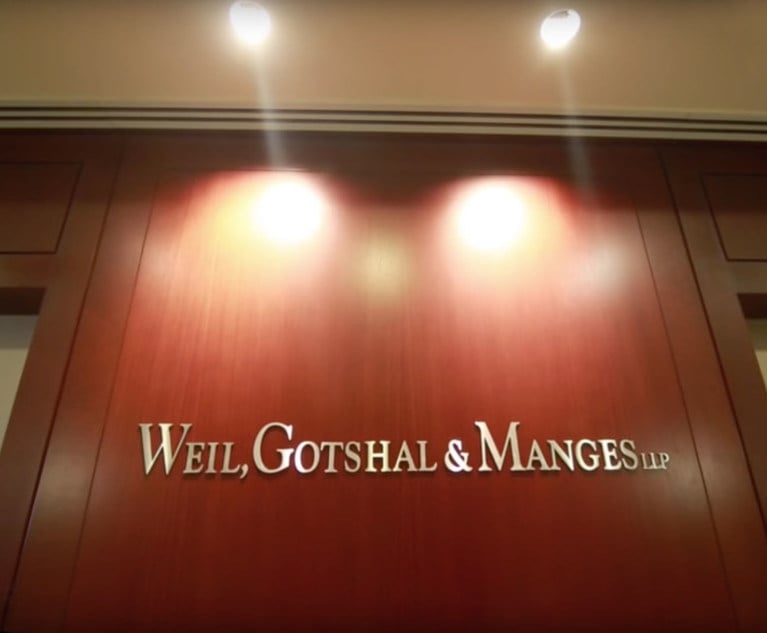LLPs to face NI contribution hike in move to clamp down on taxing self-employed staff
Law firms structured as limited liability partnerships (LLPs) may be liable for increased national insurance contributions (NICs), under Government plans to rein in tax lost to self-employed partners. If passed, the National Insurance Contributions Bill, formally announced in the Queen's Speech on 8 May, would remove the presumption of self-employment for LLP members from April 2014.
May 16, 2013 at 07:03 PM
4 minute read
Presumption of self-employment for LLP members to be axed from 2014 if Government proposals go ahead
Law firms structured as limited liability partnerships (LLPs) may be liable for increased national insurance contributions (NICs), under Government plans to rein in tax lost to self-employed partners.
If passed, the National Insurance Contributions Bill, formally announced in the Queen's Speech on 8 May, would remove the presumption of self-employment for LLP members from April 2014.
Most LLPs are currently taxed as a partnership and salaried partner members – who technically may be classed as employees by their firm – are classed as self-employed, allowing firms to pay less tax.
For a salaried partner, a switch from presumed self-employed status to employee status could land the firm with a 13.9% rise in NICs.
A firm with 50 salaried partners – who are each paid £200,000 a year, but are classed as members rather than employees – might, for example, be liable to pay £1.4m more in NICs under the proposed change.
However, with law firms operating a variety of different levels of partner within LLPs, there is still a lack of clarity over exactly which definition of 'self-employed' HM Revenue & Customs will use.
"One of the areas that will need to be clarified is the criteria an individual would have to satisfy to be classed as self-employed by the Revenue – there are currently grey areas," said Clive Greenwood, joint head of the partnership and LLPs group at Lewis Silkin.
"Different firms will have different categories of partner with different rights under the LLP agreement in relation to capital contributions, risk, profit share, and participation in losses.
"Law firms will have to get out their members' agreements and ask whether they think that all members can satisfy whatever criteria are established to pass the 'self-employed' test."
 Farrer & Co professional practices partner Jonathan Haley (pictured, right) added: "The move has come as no surprise. A very significant amount of revenue is currently being lost through the NIC saving.
Farrer & Co professional practices partner Jonathan Haley (pictured, right) added: "The move has come as no surprise. A very significant amount of revenue is currently being lost through the NIC saving.
"For some firms, it may even have been the driving force (or at least a deciding factor) for their LLP conversion. Removal of the presumption could result in a significantly increased NIC bill for some."
The bill, which is designed to reduce NIC costs to small businesses, will also give all businesses and charities a £2,000 employment allowance towards NIC costs.
The Government says the bill would allow around 450,000 UK employers – about one third of all businesses – to avoid paying employer NICs completely.
Other legislation that will be tackled this coming year, as outlined in the Queen's Speech, includes an immigration bill, making it easier to deport people who do not have a right to stay in the UK, and a pensions bill, which will simplify the current basic state pension and earnings-related top up structure by replacing it with a single tier system.
An offender rehabilitation bill, meanwhile, will see offenders who serve sentences of less than a year put under supervision for 12 months after their release.
The new legislative programme comes as research by legal information provider Sweet & Maxwell has shown that the number of new laws introduced by the Government rose for the first time in three years in 2012.
According to the study, efforts to cut red tape have decreased, with 1,466 new laws introduced by the Coalition Government in the past year, compared with the 1,355 introduced in 2011, an 8% rise.
Significant new laws introduced over the last year include the Financial Services Act 2012 and the Legal Aid, Sentencing and Punishment of Offenders Act 2012.
This content has been archived. It is available through our partners, LexisNexis® and Bloomberg Law.
To view this content, please continue to their sites.
Not a Lexis Subscriber?
Subscribe Now
Not a Bloomberg Law Subscriber?
Subscribe Now
NOT FOR REPRINT
© 2025 ALM Global, LLC, All Rights Reserved. Request academic re-use from www.copyright.com. All other uses, submit a request to [email protected]. For more information visit Asset & Logo Licensing.
You Might Like
View All
Tribunal Dismisses AML Case Against Kennedys’ Chief Risk Officer, But Ex-Partner Fined
2 minute read

FCA Fines Metro Bank £16.7M Over ‘Financial Crime Failings’
Trending Stories
- 1Legal Tech's Predictions for Knowledge Management in 2025
- 2Fenwick Shutters Shanghai Office
- 3Litigators of the (Past) Week: Defending Against a $290M Claim and Scoring a $116M Win in Drug Patent Fight
- 4Litigator of the Week Runners-Up and Shout-Outs
- 5Am Law 50's Head Count 'Holding Pattern' Could Trickle Down
Who Got The Work
Michael G. Bongiorno, Andrew Scott Dulberg and Elizabeth E. Driscoll from Wilmer Cutler Pickering Hale and Dorr have stepped in to represent Symbotic Inc., an A.I.-enabled technology platform that focuses on increasing supply chain efficiency, and other defendants in a pending shareholder derivative lawsuit. The case, filed Oct. 2 in Massachusetts District Court by the Brown Law Firm on behalf of Stephen Austen, accuses certain officers and directors of misleading investors in regard to Symbotic's potential for margin growth by failing to disclose that the company was not equipped to timely deploy its systems or manage expenses through project delays. The case, assigned to U.S. District Judge Nathaniel M. Gorton, is 1:24-cv-12522, Austen v. Cohen et al.
Who Got The Work
Edmund Polubinski and Marie Killmond of Davis Polk & Wardwell have entered appearances for data platform software development company MongoDB and other defendants in a pending shareholder derivative lawsuit. The action, filed Oct. 7 in New York Southern District Court by the Brown Law Firm, accuses the company's directors and/or officers of falsely expressing confidence in the company’s restructuring of its sales incentive plan and downplaying the severity of decreases in its upfront commitments. The case is 1:24-cv-07594, Roy v. Ittycheria et al.
Who Got The Work
Amy O. Bruchs and Kurt F. Ellison of Michael Best & Friedrich have entered appearances for Epic Systems Corp. in a pending employment discrimination lawsuit. The suit was filed Sept. 7 in Wisconsin Western District Court by Levine Eisberner LLC and Siri & Glimstad on behalf of a project manager who claims that he was wrongfully terminated after applying for a religious exemption to the defendant's COVID-19 vaccine mandate. The case, assigned to U.S. Magistrate Judge Anita Marie Boor, is 3:24-cv-00630, Secker, Nathan v. Epic Systems Corporation.
Who Got The Work
David X. Sullivan, Thomas J. Finn and Gregory A. Hall from McCarter & English have entered appearances for Sunrun Installation Services in a pending civil rights lawsuit. The complaint was filed Sept. 4 in Connecticut District Court by attorney Robert M. Berke on behalf of former employee George Edward Steins, who was arrested and charged with employing an unregistered home improvement salesperson. The complaint alleges that had Sunrun informed the Connecticut Department of Consumer Protection that the plaintiff's employment had ended in 2017 and that he no longer held Sunrun's home improvement contractor license, he would not have been hit with charges, which were dismissed in May 2024. The case, assigned to U.S. District Judge Jeffrey A. Meyer, is 3:24-cv-01423, Steins v. Sunrun, Inc. et al.
Who Got The Work
Greenberg Traurig shareholder Joshua L. Raskin has entered an appearance for boohoo.com UK Ltd. in a pending patent infringement lawsuit. The suit, filed Sept. 3 in Texas Eastern District Court by Rozier Hardt McDonough on behalf of Alto Dynamics, asserts five patents related to an online shopping platform. The case, assigned to U.S. District Judge Rodney Gilstrap, is 2:24-cv-00719, Alto Dynamics, LLC v. boohoo.com UK Limited.
Featured Firms
Law Offices of Gary Martin Hays & Associates, P.C.
(470) 294-1674
Law Offices of Mark E. Salomone
(857) 444-6468
Smith & Hassler
(713) 739-1250








